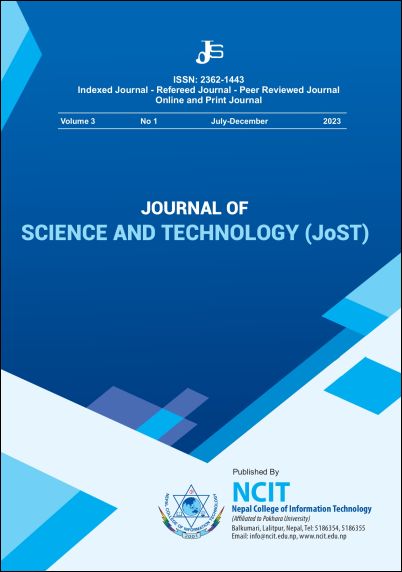Strategic Framework for Implementation of Heat Wave Early Warning System
DOI:
https://doi.org/10.3126/jost.v3i1.69061Keywords:
Heat Wave, Early Warning System, Temperature, Thermohygrometric Index, Web Service, SMS alert, PreventionAbstract
Southern Nepal (Terai region) experiences very hot summer every year and is more vulnerable to heat waves with climate change and increasing population. Heat wave hazard is overlooked in Nepal by government and scientific community as it lacks spectacular and sudden violence like other hazards and the country is trying to mitigate other major hazards like epidemic, floods, landslides, fires and earthquake. Through literature review, case studies and study of meteorological and demographic data of Bara district, this thesis presents outline of trend and impacts of heat wave describing current level of preparedness and adaptation. It proposes a heat wave definition for southern Nepal which requires value of Tmax to exceed 39.5 ºC or THImax to exceed 33.1ºC for 3 consecutive days. It proposes heat wave early warning system from national to local level for Terai region of Nepal with three warning levels which will remain active from April to July along with response plans.
Early Warning System Model designed using Android-based mobile technology, with the aim of warning to the continuity. An early warning system will send text messages based Web Services via mobile devices such as smart phones. The results of this study are models of early warning systems designed to help and provide an information through text messages. Waterfall and in the development of system design using integrated modeling language namely Unified Modeling Language (UML).




